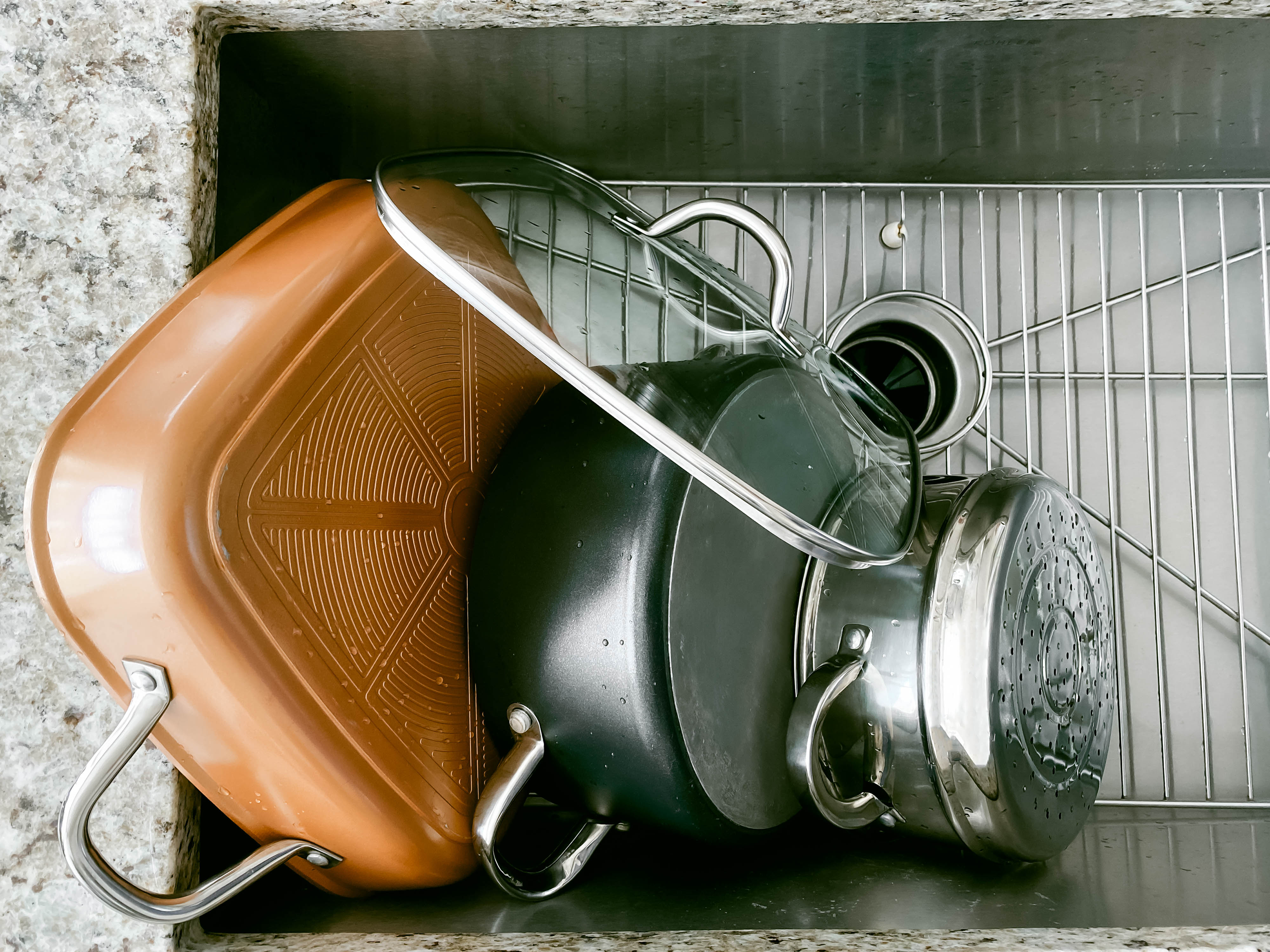Despite their buttery soft cooking surfaces, nonstick pans can still be a chore to clean— especially if your cookware is heavy, large, or just covered in food. It can be tempting to pop your pieces into the dishwasher , but this can actually damage your cookware in the long run.
To make sure your nonstick pans stay in prime condition, we're sharing the lasting effects of exposing your pans to frequent dishwasher cycles—and which cleaning methods cookware experts say you should use instead.
- Bernard Janssen is an executive chef, culinary teacher, recipe writer, and spokesperson for all premium brands under ZWILLING J.A. Henckels.
- Daniel Winer is a co-founder and CEO of Hexclad.
Why Nonstick Pans Should Never Go in the Dishwasher
The combination of high heat and strong detergents can be a toxic concoction for nonstick pans, breaking down their coating over time, explains chef Bernard Janssen. "Even if a pan is labeled as dishwasher-safe, it’s still exposed to conditions that will wear away its surface faster than gentle handwashing," he says, adding, "you might not notice it immediately, but eventually, food will start sticking, and [your pan will become] harder to cook and clean with." In essence, you're shortening the lifespan of your nonstick cookware at a much speedier pace.
And worse, once you compromise your pan's coating, it will also heat less evenly and potentially start to flake, explains Janssen. This can affect your food safety and quality, so if you spot any of these red flags, it’s a sound indicator you might be due for a cookware replacement soon.
How to Clean Nonstick Pans Without Damaging Them
If you've been tossing all your pans in the dishwasher, not to worry. The good news is that you can delay the need for a replacement—or even avoid it altogether—if you choose the right cleaning method.
1. Follow Manufacturer's Guidelines
The easiest way to take the guesswork out of knowing how to care for your pans? Read your cookware's cleaning guidelines. Stay alert, though: while some manufacturers market their cookware as dishwasher-safe, Janssen still advises against loading any of them into your appliance. “All nonstick coatings perform better and last longer when treated gently,” he says. "Hand-washing is the way to go" if you want to get the most out of your pans.
2. Be Gentle With Your Cooking (and Cleaning) Routine
“For nonstick, it’s all about being gentle." Janssen says. To start, "avoid using very high heat when cooking, let the pan cool slightly after use, then wash it with warm water, mild soap, and a soft sponge. Most nonstick pans are easy to clean this way and hold up really well if you stick to a simple routine," he says. "With nonstick, the more careful you are, the better [your] pan performs and the longer it lasts."
3. Treat Tough Stains with Care
But sometimes, you may need to tackle tougher residue, and in these cases, Daniel Winer, co-founder and CEO of Hexclad, recommends using a simple baking soda and water paste. But, if that doesn't cut it, he says you can also simply deep clean your cookware by soaking it in warm, soapy water for 10–15 minutes, then wipe it down with a soft sponge. Lastly, for the safest cleaning routine, it's best to steer clear of metal scrubbers or harsh scouring pads, as they can cause further damage your cookware’s surface.
Shopping for New Pans? Choose the Right Nonstick Cookware
Janssen explains that not all nonstick pans are made equal. As you search for your next piece (or set), you'll find cookware runs the gamut from PFAS-free ceramic to traditional nonstick and granitium ceramic-infused or hybrid stainless steel options. Winer suggests choosing an option similar to HexClad's hybrid cookware, which fuses stainless steel with a ceramic nonstick coating. The combination makes these cooking vessels more durable and versatile than traditional nonstick or stainless steel pieces. Added bonus: these fusion models have the ability to re-season themselves from the natural fats in the food you cook (much like cast iron).
As you search for the best nonstick cookware, take time to research the materials to ensure they align with your personal health values and cooking needs. Some nonstick pans may contain “forever chemicals," a term used to describe a group of manmade chemicals called polyfluoroalkyl and perfluoroalkyl substances (PFAS) that do not break down easily in the environment (or in the human body). You may also find compounds like polytetrafluoroethylene (PTFE), chromium, aluminum, chromium, manganese, phosphorus, nickel, iron.
"With a little research you can find the nonstick cookware that will work best for your lifestyle," Janssen says.



